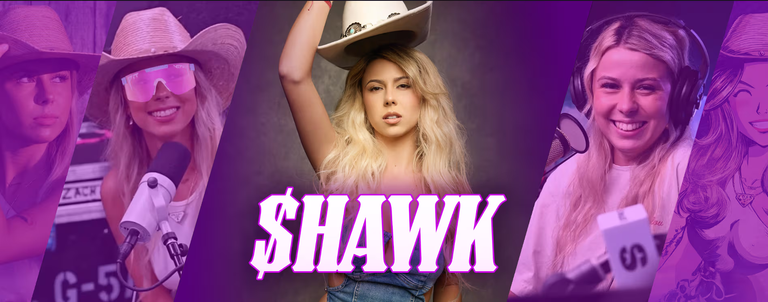Hailey Welch, “Hawk Tuah” Meme Star, Says Authorities Cleared Her in Crypto Token Controversy
Hailey Welch, the viral internet personality famously known as the “Hawk Tuah Girl,” has broken her silence regarding the $HAWK memecoin controversy that rocked crypto circles earlier this year. In a recent episode of her relaunched podcast, she claimed that both the U.S. Securities and Exchange Commission (SEC) and the Federal Bureau of Investigation (FBI) conducted inquiries into her role in the scandal — and concluded she had no legal liability.
The controversy centers around the launch and subsequent collapse of a digital token named after her signature catchphrase. Introduced to the crypto market in December 2024, the $HAWK token initially captured massive attention, seemingly riding on Welch’s viral fame. At its peak, the token’s market capitalization soared past $500 million. However, the high didn’t last. Within minutes of reaching its top valuation, the coin’s value nosedived by more than 90%, leaving many investors stunned and angry, alleging they had fallen victim to a classic “pump-and-dump” scheme.
Welch, however, has maintained that her involvement was superficial. According to her own statements, she was hired as a promotional face for the project and had very limited understanding of how cryptocurrencies work. She emphasized that she did not hold or trade any of the $HAWK token herself, nor did she profit from its rise or fall.
In her words, she was simply handed a script and did what she was paid to do — appear in promotional content and bring visibility to the project. “I didn’t know anything about crypto when I was asked to participate,” Welch said in her podcast. “I never had access to any wallets or coins, and I didn’t make a dime off the trading side of things.”
After the token imploded and backlash mounted, Welch retreated from the public eye for a time. Her silence led to speculation online about whether she might face consequences from financial regulators. That silence ended recently with the debut of the newly independent version of her podcast, now called Talk Tuah, produced by her own company, 16 Minutes.
The podcast relaunch marks a new chapter for Welch, who is also distancing herself from her previous media partner, Betr Holdings Inc., the digital sports and entertainment company that initially helped manage her public image post-viral fame. She has also hinted at broader career ambitions. Among them is an upcoming documentary in the works by Bungalow Media + Entertainment, which promises to explore Welch’s rapid rise to cultural notoriety and the unexpected fallout of becoming a meme in the crypto age.
Though Welch appears to be in the clear legally, the incident has stirred up renewed debate over the use of internet fame in crypto marketing. As memecoins continue to flood the market, often tied to pop culture icons or social media personalities, critics argue that uninformed fans and investors are at risk of being misled.
Financial experts continue to urge caution, emphasizing that viral fame does not equal financial expertise. Welch herself echoed that sentiment in her podcast, admitting that she was overwhelmed by the technical complexity of the space and never anticipated the chaos that would follow.
In hindsight, Welch says she would have approached things differently. “If I had known the impact this would have, I never would’ve signed on,” she said. Still, she seems determined to move forward, telling her audience that this experience taught her a lot — not just about crypto, but about fame, responsibility, and learning the hard way what it means to have influence.
Should influencers be held legally or ethically accountable for promoting financial products they don't fully understand — even if they didn’t directly profit from them?
